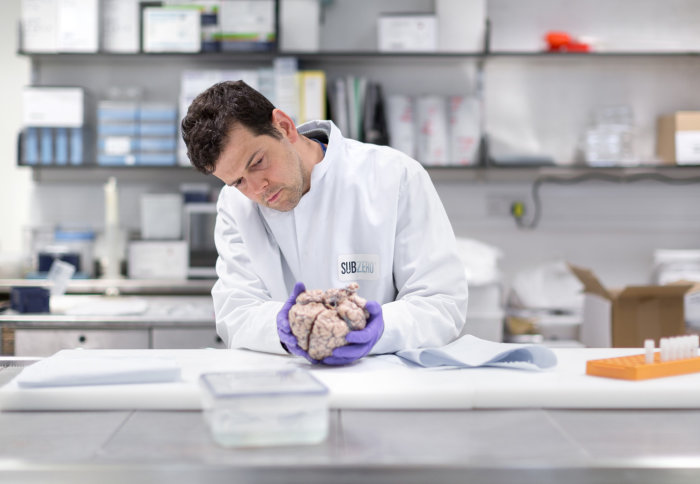Parkinson's research 'at risk' due to lack of awareness of brain donation

Vital research to find a cure for Parkinson's could be at risk because of confusion and uncertainty around brain donation, a new survey suggests.
The survey, commissioned by Parkinson’s UK for their ‘Pledge your brain for Parkinson's’ appeal, found that almost four in five (78%) UK adults are unaware that the NHS Organ Donor Register does not include the brain, and that individuals need to register through a separate system to donate their brain for research.
The appeal comes ahead of the change in organ donation in England expected on May 20, which will move to an 'opt-out' system, also known as Max and Keira's law. Adults will be considered to have agreed to be an organ donor for transplantation when they die. However, this does not include the option to donate your brain for research.
The Parkinson's UK Brain Bank based at Imperial College London is the world's only brain bank solely dedicated to Parkinson's research and relies on donations from individuals with and without the condition. Precious tissue is collected here and provided to researchers all over the world.
Comparison is key
"Our brains are invaluable and could help unravel the mysteries of this complex condition and lead us to find a cure" Professor Steve Gentleman
According to the survey, when made aware of the need to sign up separately, there was apprehension from 57% of people, with 35% saying they were unsure or didn’t know if they would donate their brain, and a further 22% saying they wouldn't donate. 16% said they were unsure how their brain would be used, and 10% incorrectly believed their brain wouldn't be of use because they don't have Parkinson's.
Crucially, scientists researching Parkinson’s disease require brains from both people with and without the condition, as Professor Steve Gentleman, Director of the Parkinson's UK Brain Bank at Imperial explains: "Scientists can only work out why nerve cells that produce dopamine are dying by comparing brain tissue of people who don't have Parkinson's with the tissue of people who do.”
“There is a misconception that unaffected brain tissue isn't useful which needs to be dispelled. Our brains are invaluable and could help unravel the mysteries of this complex condition and lead us to find a cure."
Backing up this lack of awareness, Parkinson’s UK found there is a reluctance to donate the brain over other organs. Key findings showed that UK adults feel uneasy donating their brain in comparison to other organs:
- 57% would be comfortable donating a kidney
- 53% would be comfortable donating their liver
- 52% would be comfortable donating their heart
- 37% would be comfortable donating their brain
Accelerating research through donations
The charity says that this reluctance poses a threat to Parkinson's research. The new 'Pledge your brain for Parkinson's’ appeal aims to highlight that a separate system to donate your brain for research is available, but also that the need has never been greater for people to consider donating.

Professor David Dexter, Associate Director of Research at Parkinson's UK and Visiting Professor at Imperial, said: "Parkinson's is the fastest-growing neurological condition in the world, and the need for research has never been greater. Conducting research on donated brains from healthy individuals and people affected by Parkinson's is essential if we are to uncover what causes Parkinson's.”
"Over the last 35 years, research using tissue donated to the Parkinson's UK Brain Bank has led to major advances in our understanding of Parkinson's. We've identified defects in the mitochondria, the energy-producing cells in our bodies, in the brains of people affected by Parkinson's. None of this would have been possible without people being willing to donate their brains.”
"1 in 37 of us will be diagnosed with the condition in our lifetime, so now is the time to accelerate research, by encouraging brain donation, so that we can drive forward the development of better treatments for the 145,000 people affected by Parkinson's now and prevent Parkinson's developing in future generations."
This article was adapted from a press release by Parkinson’s UK
Article text (excluding photos or graphics) © Imperial College London.
Photos and graphics subject to third party copyright used with permission or © Imperial College London.
Reporter
Ms Genevieve Timmins
Academic Services